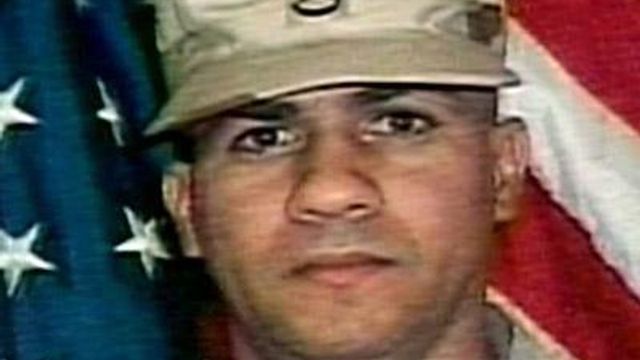State News
Jury deliberates fate of soldier accused of killings
A military jury on Wednesday began deliberating the fate of a New York Army National Guard soldier accused of killing two superior officers in the first alleged "fragging" case arising from the war in Iraq.
Posted — UpdatedFORT BRAGG, N.C. — A military jury deliberated for about eight hours Wednesday without reaching a verdict in the murder trial of a New York Army National Guard soldier, who stands accused of the bombing deaths of two superior officers on a U.S. military base in Iraq.
Jurors deciding the fate of Staff Sgt. Alberto Martinez at Fort Bragg at one point asked the judge for transcripts of a witness' testimony. The 14 jurors, who heard nearly six weeks of testimony, couldn't reach a decision but were scheduled to resume deliberations Thursday.
Martinez, 41, of Troy, N.Y., could face the death penalty if convicted of premeditated murder in the deaths of Capt. Phillip Esposito of Suffern, N.Y., and 1st Lt. Louis Allen of Milford, Pa. All three were members of the 42nd Infantry Division.
Both officers were killed when an anti-personnel mine detonated in a window of their room at Saddam Hussein's Water Palace near Tikrit in June 2005. The military built an operating base around the palace that sheltered up to 3,000 troops.
Martinez is the first soldier from the wars in Afghanistan and Iraq to be accused of killing a direct superior, a crime known as "fragging" during the Vietnam war. Witnesses have testified that Martinez and Esposito fue because Esposito believed Martinez was lax in operating the unit's supply room.
Jurors asked Wednesday to review transcripts of witness Amy Harlan's testimony. The supply sergeant had testified that she delivered ammunition and Claymore mines – the type of explosive that killed the officers – to Martinez's supply room about a month before the deadly bombing. Harlan said she neither received nor requested a receipt documenting who took the equipment, a usual military practice.
The judge's transcripts weren't yet available but the jurors could hear recordings of her testimony, though they didn't request the tapes.
Prosecutor Maj. John Benson told jurors during closing arguments Tuesday to recall testimony about Martinez's frustration and animosity toward Esposito. Benson also noted testimony about Martinez's ability to get Claymore mines, the type of explosive that killed the officers.
"Those are signposts that will lead you to the truth," Benson said.
But defense attorney Maj. John Gregory said his client couldn't have carried out such an attack, as evident by his military proficiency scores.
Gregory also argued that Martinez was singled out as a suspect because of his mannerisms and the derogatory comments he made to other soldiers about Esposito. Gregory said Martinez was innocent and that other soldiers had the opportunity and motive to commit the killings.
"He's a person who's easy to cast suspicion upon," Gregory said. "Sgt. Martinez wouldn't commit these crimes."
Martinez didn't testify and has pleaded not guilty.
In order for prosecutors to seek a death sentence, the jury must unanimously convict Martinez.
For a conviction, 10 of the 14 jurors must find Martinez guilty. The maximum penalty would then be life in prison.
Jurors will continue deliberations Thursday at 8:30 a.m.
• Credits
Copyright 2024 by WRAL.com and the Associated Press. All rights reserved. This material may not be published, broadcast, rewritten or redistributed.





